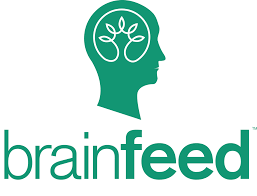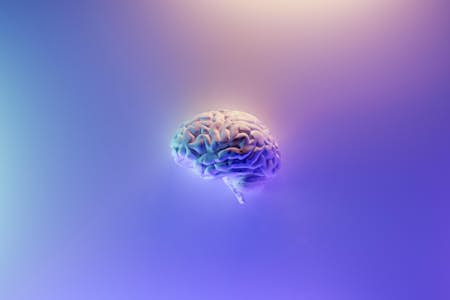Dysphasia is a speech and communication disorder resulting in partial language loss. It's usually described as a disruption in the connection between thought processes and spoken language. Living with any communication problem is understandably tricky.
A diagnosis is usually only possible after ruling out other conditions, such as cognitive impairment (memory) and movement impairment (apraxia). Experiencing dysphasia can be extremely worrying, and finding the cause and a treatment plan for your symptoms will help you manage them as well as possible.
What are the most common symptoms of dysphasia?
People with dysphasia will experience individual difficulties, and not all symptoms may be present. It is usually caused by brain damage or trauma; how this affects language depends on where the injury occurs. Common symptoms include:
- Struggling to find words, known as anomia
- Speaking slowly or with great difficulty
- A change in language abilities
- Speaking in single words or short fragments
- Struggling to find the right words
- Omitting small words, such as articles and prepositions, known as telegraphic speech
- Mixing up words
- Struggling to understand other’s speech
- Inability to answer simple questions
- Misinterpreting meaning
Dysphasia can also cause other impairments, such as difficulties with reading and writing. If you experience a full spectrum of symptoms, you may receive a diagnosis of aphasia rather than dysphasia.
What causes dysphasia?
Dysphasia is a symptom of injury or damage in specific areas of the brain. The cause of this damage can vary significantly from severe head injuries to brain tumours, migraines, and epilepsy, including seizures. Dysphasia can be temporary, and this is often the case in patients who experience migraines or seizures. Once the attack has finished, the dysphasia also passes. Stroke is one of the most common causes of dysphasia, although more stroke patients are diagnosed with the more severe aphasia. The condition can also be a symptom of other diseases, including Parkinson’s and other neurodegenerative conditions.
Understanding the different types of dysphasia
There are two main types of aphasia or dysphasia: receptive and expressive.
Receptive Dysphasia and Aphasia
People with receptive aphasia and dysphasia have difficulty understanding written or spoken language. This is because patients have usually experienced trauma in a particular part of their brain, which can occur alone or alongside expressive dysphasia. As a result, people with receptive dysphasia may be able to speak fluently, but their speech may not make sense. It can be very distressing, especially in anomic aphasia, where people cannot find the words they need. There are three main types of receptive dysphasia.
1. Wernicke’s aphasia
The Wernicke’s is an area of the brain that controls word retrieval, comprehension and semantic language. When this area is damaged, it can result in Wernicke’s aphasia, which limits a person’s ability to understand speech, even though they can still produce it in a jumbled, often unintelligible way.
2. Transcortical sensory aphasia
Transcortical sensory aphasia means the individual is aware their language is sometimes nonsensical or jumbled. They may be able to speak coherently much of the time but experience periods of difficulty, making this a less severe condition.
3. Global aphasia
As the name suggests, global aphasia is an extensive and severe condition that occurs after significant brain damage. Patients may find brain lesions in different areas of the brain. People with global dysphasia or aphasia often cannot understand or produce language effectively.
Expressive dysphasia
Expressive dysphasia refers to people who struggle to express what they want to say. It most prominently affects expressive language and speech but can also impact reading and writing. Speech is often non-fluent, and understandably, people often get frustrated as they cannot find the words for things. Difficulties with speech production are common, and this condition is usually categorised into two further smaller groups.
1. Broca’s dysphasia
Broca’s aphasia or dysphasia occurs when there is damage to the pre-motor cortex, the lower part of the brain. The damage occurs specifically in Broca’s area, which is responsible for motor speech production. It regulates breathing patterns to allow for normal speech patterns. Individuals with this condition may struggle to speak or can only produce single utterances with significant effort.
2. Transcortical dysphasia
Transcortical brain injuries mean there has been damage to the language-dominant part of the brain. People with transcortical dysphasia experience speech and language problems and additional neurological problems.
Conduction aphasia
A less common condition is conduction aphasia, where patients' expression and comprehension remain functional. However, they struggle and have a significant yet isolated impairment when repeating simple phrases. Conduction aphasia is caused by damage to the parietal lobe of the brain.
What about Dysarthria?
When looking for a diagnosis, people often get mixed up between dysphasia and another condition called dysarthria - some patients experience both. Dysarthria is a biomechanical condition where you have difficulty speaking due to weakness in the muscles used for speech. It can be caused by brain damage, but there are other causes.
Treatment plans and therapies for dysphasia
To find the right treatment plan for your condition, it is first important to identify the specific areas of language affected by dysphasia. The NHS recommend speech therapy as the primary treatment for this condition. Your GP can refer you to neurology and arrange for you to begin speech and language therapy. A speech and language therapist will develop a treatment plan that fully meets your needs. The main treatment options for this condition are not limited to therapy, but it is often the most effective pathway back to functional language.
We spoke to Hulya Mehmet, a speech and language therapist, who told Health Times: "Dysphasia can be a frustrating and isolating condition, and supportive therapy such as counselling or support groups can be helpful for both the person with dysphasia and their loved ones.
"Coping with dysphasia is a process, it’s normal to have ups and downs along the way. A speech therapist and supportive healthcare team can help to develop effective strategies for managing dysphasia and staying positive."
The most common treatment options include:
Speech and language therapy
Most patients will be offered speech therapy. A professional speech and language therapist will work with you to build your communication skills. You should be able to access speech and language therapy through the NHS.
Medication
Sometimes the right medication can help minimise the impact of the condition. For example, patients who have experienced a stroke can take medication to lower the swelling in their brains, which can minimise the impact of any speech problems.
Assistive technologies
If traditional methods of communication and speech are difficult or tiring, assistive speech technologies may be recommended. Devices such as speech-generating devices, communication boards and augmentative and alternative communication can help patients communicate without spoken language.
Planning a future with dysphasia
Most people experiencing dysphasia are immediately aware as the condition occurs alongside other symptoms or medical problems. However, people with dysphasia can often regain functional speech and language with a commitment to their therapies and the right treatment programme. The condition is often temporary, but it can also be something you learn to live with and adapt to.
If you're looking for support with dysphasia, you should initially visit your GP. You can also contact organisations such as the Stroke Association, SLT UK and other condition-specific organisations and charities such as the Multiple Sclerosis Trust or Alzheimer's Society. There are support groups and organisations ready and waiting to help people with dysphasia thrive.








